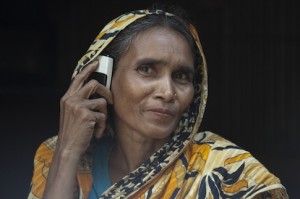
Source: Global mHealth Initiative
Baltimore-based Johns Hopkins University's Global mHealth Initiative has undertaken what the Baltimore Sun calls "one of the broadest efforts to assess mHealth strategies" with 49 official studies underway by dozens of university faculty members. According to the report, the initiative is evaluating which mHealth services can help physicians, community health workers and consumers "in ways equal to other more traditional methods" like clinic visits or in-person coaching. (Maybe even in ways superior to existing and legacy methods?)
"It's a nascent field, and few health apps have been rigorously evaluated," Alain B. Labrique, director of the Global mHealth Initiative, told the Sun. "A lot of the apps you see out now have a disclaimer, or should have a disclaimer, that they have not been validated through rigorous research. It comes down to the individuals' perceptions that the app works for them."
Labrique told the Sun that his team has already uncovered some evidence that certain apps do have value. Those include: Ones that "help patients adhere to their drug regimens through regular reminders... help people change harmful behaviors such as smoking with various messages... and... aid in weight loss through texts about specific goals and behaviors."
Labrique describes some of these apps as "guardian angels" in your pocket.
For more, read this worthwhile article in The Baltimore Sun















